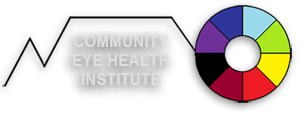RAAB-DR Survey in Southern Province, Zambia going well

As part of the strategy to reduce the burden of avoidable blindness in the Southern Province, Zambia, a Rapid Assessment of Avoidable Blindness and Diabetic Retinopathy (RAAB+DR) survey is currently underway to estimate the prevalence and causes of avoidable blindness and severe visual impairment in the people aged ≥50 years.
This RAAB+DR survey is being organised by the Maasha Mission funding from CBM, in collaboration with the Zambian Ministry of Health. Dr Phyllis Moonga (National Eye Care Coordinator) is the Principal Investigator and Dr Brian Ng'Andwe, (Provincial Eye Health Coordinator) the co-Principal Investigator. Training, data collection support and monitoring and reportage was provided by Dr Deon Minnies, a certified RAAB trainer and Director of the Community Eye Health Institute, University of Cape Town, South Africa.
A total of 16 delegates completed a five-day training programme 8 to 12 November 2022, facilitated by Dr Minnies. This included four examination teams, each comprising of an ophthalmologist and an ophthalmic nurse, a cluster informer team (comprised of an ophthalmic clinical officer, the survey coordinator and two officials from ZAMSTATS) and a “gold standard” team, comprised of two ophthalmologists, Drs Phiri and Ng'Andwe. Dr Zipphora Phiri, a vitreo-retinal specialist provided training and support in DR grading.
This training covered the key knowledge and skills aspects required for collecting data on blindness and visual impairment in the province. These included standardized definitions in the survey protocol, compact segment sampling, enrolment and examination procedures, the method of obtaining informed consent and recording of examination data. Several methods of achieving validity were incorporated into the training, data collection and analysis procedures. A supplementary segment covering diabetic retinopathy (DR) and DR grading was included, led by Dr Phiri.
The data collection started with the field pilot held on Friday 11 November, which went off to a good start. Although the cluster was not finished, the team's energy and excitement about the long data collection period (almost 2 months!) that lay ahead was evident from the start. They immediately started with data collection proper after the weekend, and by the end of the first week, were showing great progress, despite having to tackle the difficult terrain and long distances of a mostly rural province.
We wish them a safe, great and successful data collection phase.
